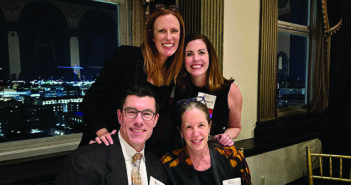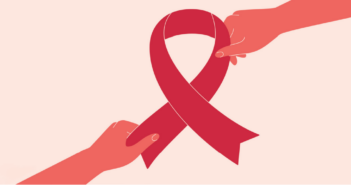In the midst of these questions and observations (and in the midst of my undeniable failure as a high school teacher) I found myself thinking more deeply about the territory of the mind. For years, I had written poems that flirted with madness. A yearning love poem had in it the figure of a cryptic madwoman:
… down the hill the old widow has laced her river
birch with bottles, some clear, some green, all clouded.
They stay without string or fixative, each thin neck;
encircling a sturdy twig. Pieces of wind inside
she croons at me one day. A piano for the rain
she confides the next, grinning, and just yesterday,
solemn, You see, I’m making a deal with God.
Another poem explored the fractured logic and linguistic associations of madness:
the woman comes to your door and knocks.
Nothing about her looks wrong but something
does not look right. Do you have
the padlock’s key? she asks and points
to your coat closet.
I have to get upstairs
delusion, illumine,
lumière, solution,
illusion, lunacy,
luz; there’s light
in all of it.
Light at the end
of the tunnel,
lights are on
but no one’s home.
The social worker is new. The man speaks
steadily without crying. Mother left
first. Father stuffed my rolled
socks into the tailpipe of a rented car. She smiles
her best empathic look, writing
absent parents, childhood trauma thinking
four more minutes he says so I’m a bird
and I’ve come to you for help
because my brother just won’t bring seed
sedate, seduce, sequester,
kestrel, guillemot, tern.
My struggling high schoolers helped me begin to understand that this poetic and intellectualized view of madness was removed, romantic, and simple. Just as, for them, Holden Caulfield failed to reflect a realistic picture of adolescent angst, so my own poetic musings about the mind’s failings largely missed the point. I was beginning to learn that real-life fractures of the mind were fascinating, and at times poignant, but they were not lovely. Instead of providing a window to an elusive realm of wisdom, mental illness more often was a flagrant display of confusion and fear, of misery made plain.
Increasingly I felt drawn to a career investigating the mind. I considered training as a social worker, or as a psychologist, but my students demonstrated what I already knew from talking to a range of therapists and doctors: the current of mental health treatment was increasingly running toward medication. If I wanted to be an educated voice that could speak to the complexities of the brain’s neurochemistry and make a cogent argument for or against medication when I believed a patient did or didn’t need it, I’d first need to learn anatomy and pharmacology. I’d have to go to medical school.
My partner, Deborah, looks back on the years prior to that decision and jokingly calls them “the years of false advertising.” It is a story she loves to tell at a dinner party when new friends ask how we met or whether I had always known I wanted to be a doctor. “Keep in mind,” she’ll say as a teasing accusation, “that when I met Christine in graduate school, she was a poet. Poets don’t have pagers,” she’ll continue. “Poets are never on overnight call.”
When I finally decided that—despite being a poet—I wanted to go to medical school, I uprooted our lives from the twentysomething dreamland of San Francisco to the somewhat less entrancing suburbs of Philadelphia in order to take a year of premed courses at Bryn Mawr College. I was met with a rude awakening and a dose of self-doubt.
The awakening came in the form of my first physics exam. In college and graduate school I had studied little, breezing through a scintillating range of humanities courses with passion, great enthusiasm, and a minimal expenditure of energy. Nonetheless, I knew my year at Bryn Mawr would pose a different set of challenges, a kind of learning with which I was unfamiliar. So I studied. Hard. And when my first physics exam was handed back to me, a large 28 was scrawled across the top. I hadn’t remembered that there had been as many as 30 questions. I flipped to the final page. There hadn’t been. I was puzzled. I tried to determine the point allocation per question and how it would add up to 28/30 or perhaps even 28/35. Then the professor projected the range of scores on the screen in the front of the room, and I saw that my lone 28—on the far left side of the bell curve—was, in fact, a 28 percent. Failure was 60 percent. I hadn’t just failed the test, I had bombed it.
This does not become a story of redemption and physics success. I did pass the course in the end, but just barely. I say without hesitation that if I were asked today to explain even the simplest relationship between force and velocity, or the concept of vectors, or whatever the hell else is in physics, I couldn’t attempt to tell you without breaking into a fit of uncontrollable laughter at my own ineptitude.




